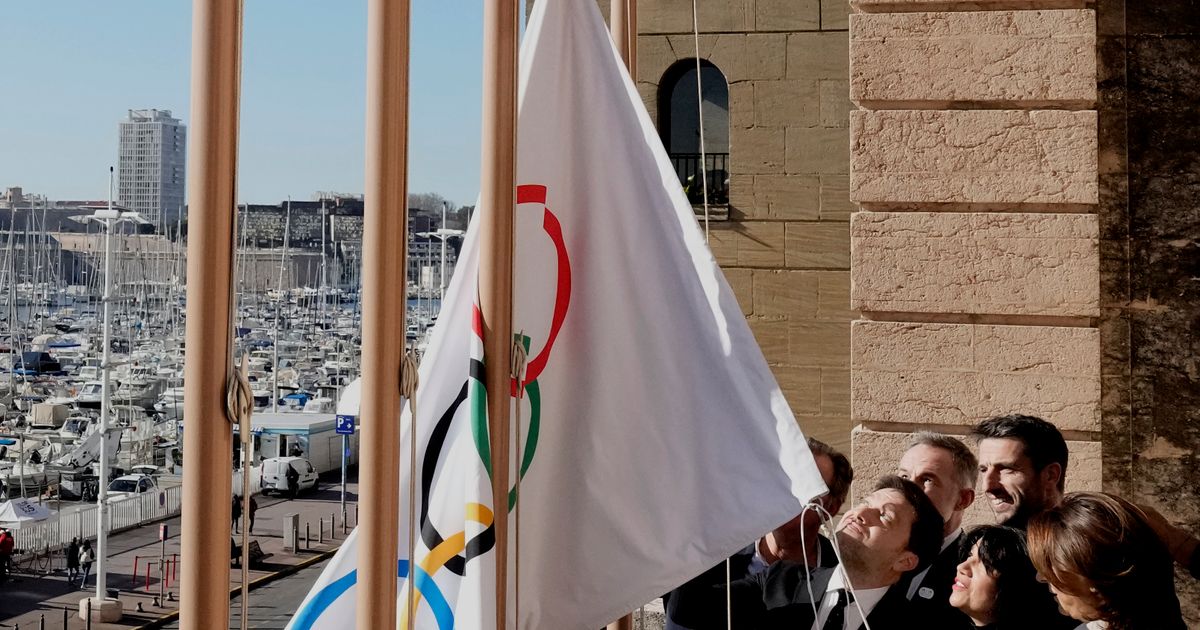
Ukraine and the three Baltic countries, all former Soviet republics, moved a step closer Friday to boycotting next year’s Paris Olympics because of the participation of Russian and Belarusian athletes.
The International Olympic Committee plans to allow Russians and Belarusians to compete as “neutral athletes” despite their invasion of Ukraine, saying it can’t discriminate athletes based on their citizenship. However, countries have been excluded in the past.
The Olympics also have a history of countries choosing to boycott rather than compete against athletes they believed should not have been invited.
1920 — Germany, Austria, Bulgaria, Hungary and Turkey are not invited to the 1920 Antwerp Olympics after defeat in World War I. Host nation Belgium was one of the countries Germany occupied. After the Bolsheviks take power in the Russian Revolution, the Soviet Union doesn’t take part in the Olympics until 1952.
1948 — Germany, Japan and Bulgaria are excluded from the 1948 London Games in the aftermath of World War II.
1952 — China has a team for the first time under communist rule, prompting the nationalist authorities still running Taiwan to stage the first confirmed Olympic boycott.
1956 — As Cold War tensions rise, Egypt and its allies boycott in protest at the invasion of their country by Britain, France and Israel during the Suez Crisis. Spain, Switzerland and the Netherlands boycott after the Soviet Union crushed an anti-Soviet uprising in Hungary. China does not take part in an Olympics again until 1980 because of disputes over Taiwan’s status.
1964 — South Africa is excluded from the 1964 Tokyo Olympics because of its apartheid system of racial discrimination. It does not compete again until 1992. Indonesia doesn’t compete after a dispute with the IOC over its refusal to host Taiwanese and Israeli athletes.
1972 — The IOC bars the team representing Rhodesia, which was ruled by a white minority at the time and is now known as Zimbabwe, under pressure from other African countries. It is also excluded in 1976.
1976 — The biggest boycott yet as 25 African countries protest the inclusion of New Zealand, whose rugby team had toured already-banned South Africa despite an international sports boycott because of apartheid.
1980 — The United States leads the largest ever Olympic boycott, comprising more than 60 nations, in protest at the Soviet Union hosting the 1980 Moscow Games year after invading Afghanistan. Some other countries, including Britain, compete, but under Olympic flags. Thomas Bach is a gold-medalist fencer who campaigns unsuccessfully against West Germany joining the boycott. Now the IOC president, Bach has said it convinced him that “a sports boycott serves nothing.”
1984 — The Soviet Union and 14 other countries boycott the 1984 Los Angeles Olympics following the U.S.-led boycott four years earlier.
1988 — South Korea hosts the 1988 Seoul Games and the Soviet Union and most other communist countries agree to compete after years of diplomatic work by the IOC. North Korea boycotts after its demand to co-host is refused.
1992 — With Yugoslavia wracked by civil war and under United Nations sanctions, the IOC lets its athletes compete at the 1992 Barcelona Games as Independent Olympic Participants in neutral uniforms. The IOC has cited this when discussing models for Russian athletes to follow next year in Paris.
2018-22 — Russian athletes compete at three consecutive Winter and Summer Olympics without their anthem or flag because of widespread doping and state-backed cover-ups. The IOC dismisses calls for Russia to be banned outright.
2021 — North Korea skips the Tokyo Olympics, held in 2021, citing coronavirus concerns. The IOC responds by banning the North Korean team from the 2022 Winter Olympics in Beijing under a policy designed to discourage boycotts.
___
More AP sports: https://apnews.com/hub/apf-sports and https://twitter.com/AP_Sports